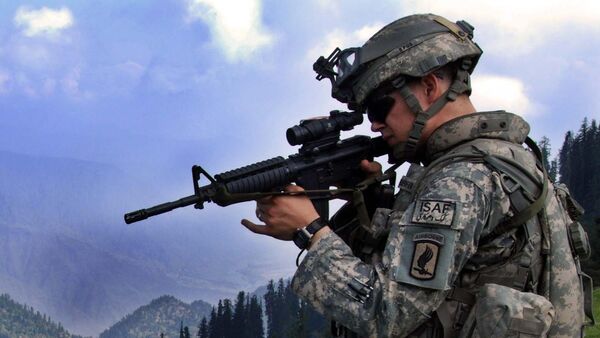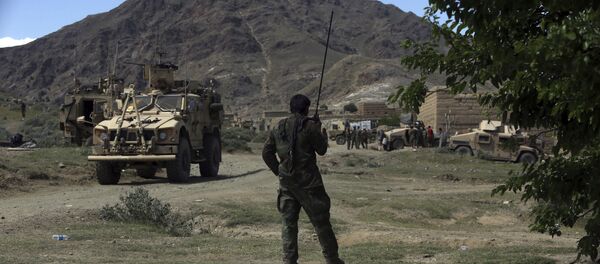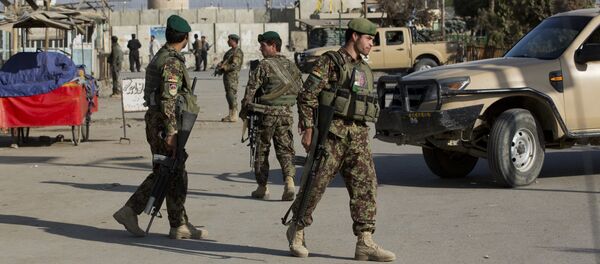Matthew Hoh, Senior Fellow at the Center for International Policy and former State Department official told Radio Sputnik’s Loud & Clear that Trump will claim he’s following the expert advice of his generals. Citing press reports, the former US official said Trump will likely announced a 3,000-4,000 troop surge in Afghanistan.
"Expect what we’ll hear what we usually hear: American military has done great things abroad. The American military has done great things for the Afghan people. The American military has kept us safe. And that [Trump’s] going to continue to allow the American military to do these things," Hoh said.
"What is that going to accomplish besides lining the pockets of some more defense companies…more pay for people who supply food and fuel for those troops? I don’t really know."
A few things are certain, however. The expected troop increase will "continue the American presence in Afghanistan, it will continue the killing, and it will continue the budget for the war, which will certainly make a lot of people happy," Hoh said, hinting at the likes of Academi [formerly Blackwater], Lockheed Martin, Raytheon, and other US security firms and military manufacturers whose revenue is inextricably linked with the operational tempo of US war efforts.
While an increase in troop levels will likely be announced by Trump, Hoh anticipates something else: "more bombing" from US airstrikes.
Hoh’s exit “sent ripples all the way to the White House,” the Washington Post reported in 2009 when the news broke that a US official had decided to ditch the war effort in protest.
Hoh’s background was prized by the US government, which, at the time said it was focused on development and reconstruction in war-torn Afghanistan. Hoh deployed in combat in Iraq with the US Marine Corps, worked at the Department of Defense in Washington and spent time as a civilian in Iraq as well as at the State Department.
“I’m not some peacenik, pot-smoking hippie who wants everyone to be in love,” Hoh said back in 2009. “There are plenty of dudes” operating with Al Qaeda and the Taliban “who need to be killed,” he said. “I was never more happy than when our Iraq team whacked a bunch of guys.”
Nonetheless, Hoh, who the Washington Post described as an “outstanding officer,” argued in a letter to the head of human resources at the State Department that “the United States military presence in Afghanistan greatly contributes to the legitimacy and strategic message of the Pashtun insurgency.”
The Pashtun insurgency, Hoh explained, “composed of multiple, seemingly infinite, local groups, is fed by what is perceived by the Pashtun people as a continued and sustained assault, going back centuries, on Pashtun land … the bulk of the insurgency fights not for the white banner of the Taliban, but rather against the presence of foreign soldiers and taxes imposed by an unrepresentative government in Kabul.”
Some of Hoh’s words from 2009 ring just as true today as they did during President Barack Obama’s first term in office: “Success and victory, whatever they may be, will not be realized in years, after billions more spent, but in decades and generations.”
Hoh continued: “The mission of US government employees and contractors in Afghanistan] have been ineffectually trained and led with guidance and intent shaped more by the political climate in Washington, D.C. than in Afghan cities, villages, mountains and valleys.”




